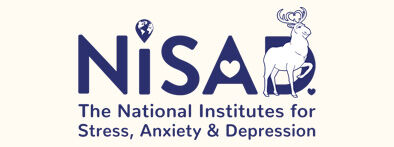What can we do when we’re upset? Whether it’s with ourselves, somebody else or a particular situation.
When we’re feeling upset with ourselves, with somebody else, or with a particular situation, we often want to lash out at others and blame ourselves for what went wrong. (Feeling upset can include feeling sad, angry, scared or ashamed.)
This feeling of upset can then stay with us and ruin the rest of the day.
What if we could pause this feeling and bring in kindness and compassion to ourselves?
Some people assume that self-compassion must be the soft, weak or “fluffy” option – perhaps a feeling that you’re ‘letting yourself off the hook’ – you need to stay on top of your game or nothing would get done or the same thing could happen again in the future.
Well yes, we can give ourselves a proverbial kick up the bottom when we’re feeling a bit lethargic, but sometimes when we’re struggling with a big challenge or difficulty being able to offer ourselves support rather than harsh words is far more skilful.
Some people may fear that being kind to themselves (especially if they are having feelings of self-pity) may lead them to lay around all day eating chocolate! But this isn’t self-compassion – it’s self-indulgence. Self-compassion is about self-care, and this includes being mindful of what is good for you in the long term, like being your own caring parent.
The ability to be compassionate towards ourselves has been shown to have an incredible range of benefits for our physical and mental well-being.
How do we do this?
Firstly, for most of us, this requires practice.
Secondly, if you find this difficult, please remember It’s not another reason to give yourself a darn good verbal beating when you find it hard to offer yourself kindness! We often find it far easier to be kind to other people and would never dream of saying to them what we say to ourselves when we feel we’ve got something wrong or aren’t coping in some way.
Have a go at this and see how it is for you. As best as you can, try to notice any judgements that come up with a sense of objective interest rather than belief. Keep practising.
A Moment of Self-compassion
Bring the situation that’s difficult for you to mind, then consciously move your attention away from the thoughts in your mind and into your body.
Can you feel any tension in your body? Sometimes there might be a knot in your stomach or constricted feeling in your throat, perhaps some pressure behind the eyes if you’re feeling tearful.
How is this emotion being felt in the body?
Try saying something along the lines of, “it’s difficult for me to feel this“, or, “this hurts.“
It’s useful to remember you are not alone in this. You could say something like, “many people will have felt like this, it’s difficult but it’s normal.” “We all struggle in our lives. I’m struggling with these feelings right now”
Experiment with putting one or both hands over your heart. You may want to gently smooth over your heart and feel the warmth of your hands.
This is a way of offering yourself tender caring.
It’s okay not to feel this, we are just practising inclining our mind towards being kinder to ourselves.
Perhaps saying something like, “may I give myself some kindness and understanding in this moment of difficulty”
If you get drawn into the thoughts of the situation causing the emotion, see if it’s possible to bring your attention back to the feelings in the body. If this is hard or you don’t really detect any sensations, practice noticing the cool, sharp in-breath and the warm, fuzzy out-breath for a few moments.
You could ask yourself what you might need to hear to express kindness towards yourself.
Kristen Neff, psychologist and research pioneer of self-compassion says to ask yourself, “what do I need to hear right now to express kindness to myself?”
What words would be helpful?
These phrases might be useful:
May I be compassionate towards myself
I need patience in this moment
Can I begin to accept myself as I am
This practice is something that we can learn to support ourselves with through all the challenging times of our lives.

Karen Asprey
BSc (Hons) DipCHyp HPD RCMT
Clinical Director at NISAD
Clinical Mindfulness Teacher and Mindfulness-based TherapistTherapist Qualified to use Hypnosis


